Allyship in Pharma – Building Industry Inclusivity

Provision of healthcare is an important aspect of people's lives, especially those in the LGBTQIA+ community. Pharmaceutical companies are working to improve this access to medicine and representation for the population.
Across the board in medicine the LGBTQIA+ community has been on the receiving end of worse care and worse outcomes compared to many other communities.
A survey by the UK government in 2017 of 108,000 people reported that 16% of individuals had a negative healthcare experience due to their sexual orientation, and 38% due to their gender identity [1]. Leaders in the medical industry often emphasise that access to medicine and the correct level of care is a fundamental right for all people, yet this does not appear to always filter down on a more individual level. The General Medical Council states:
“All patients must be able to trust doctors with their lives and health. They should all be treated with dignity and respect, regardless of their sexual orientation or gender identity.”
The General Medical Council, along with other global bodies including the National Health Service England (NHS) and the Human Rights Campaign Foundation, all specify criteria, guides, and standards of care that should be adhered to, to be able to offer the best personalised care for their patients [2].
The Human Rights Campaign Foundation has set up a Healthcare Equality Index (HEI) resource guide, which facilities can use to achieve credits in the HEI in how they practice in partnership with LGBTQIA+ populations [3].
Weill Cornell Medicine encourages patients to advocate strongly for their own healthcare, supporting learning about specific health needs and risk factors [4].
Mental health and marketing
One such risk factor for people in this diverse community is difficulties with mental health. Those who identify as LGBTQIA+ are much more likely to suffer from conditions such as depression, anxiety, suicidal thoughts, eating disorders, and misuse of alcohol or drugs. This could be due to bad experiences and discrimination. Support in this area of medicine is crucial to helping people to thrive in who they are, not just survive. Several charities work closely with the LGBTQIA+ community, such as Mind, a UK-based mental health charity, to improve quality of life and outcomes for people [5].
Pharmaceutical companies have also started to recognise their role in aiding mental health care in the LGBTQIA+ population. Janssen Pharmaceutical Companies of Johnson & Johnson launched a campaign – Depression Looks Like Me – in May 2022, that highlights the incidence of mental health conditions in the LGBTQIA+ community and provides information and advice on how to seek care.
The campaign is run largely by Janssen, showing the companies’ dedication to supporting the field, and backed by further organisations including the National Alliance on Mental Health, the Black Emotional and Mental Health Collective, and Health HIV, among others, opening up even more resources. They provide information on the treatment options available to those who suffer from depression and other mental health conditions, such as medication, psychotherapy, and medical procedures.
By actively supporting this community in their specific needs, and by including LGBTQIA+ people in the process, such as in building the content for the Depression Looks Like Me website, this pharma company sets a strong standard for allyship in this area.
This also gives an example of better inclusivity in the business and marketing side of pharma. It has been pointed out over the years that advertisements for pharmaceuticals (predominantly in the USA) aren’t representative of the wider population, with same sex couples and transgender people noticeably absent from advertisements for example [6]. Representation is a key part of normalising people’s identities and reducing discrimination, but when same sex couples are only presented in marketing campaigns in relation to diseases such as HIV and PrEP medications, this can lead to further stigmatising. In 2020, GSK partnered with Gay Times Group to redesign their marketing campaigns around some products, featuring LGBTQIA+ members in their digital content [7].
This lack of representation in marketing around pharmaceuticals has contributed to an atmosphere of minimal trust in the pharma industry from the LGBTQIA+ community, a common symptom in underrepresented communities, historically leading to a lower standard of care and a lower uptake in treatments [6].
Another company working hard to be more inclusive is Novartis, who were the first pharmaceutical company to join the United Nations Standards of Conduct for Business in 2018 [8]. The decree sets out to put a stop to discrimination against the LGBTQIA+ community and advocate for human rights in the business setting. This is achieved through setting standards for employees within the company and in showing support and advocacy for the community through raising awareness and enacting changes through policies and education around the subject [8]. Many more companies are following suit, Bayer is considered outstanding in its resources and education for employees on LGBTQIA+ matters, and Gilead being named as a best place to work for LGTBQIA+ equality by the Human Rights Campaign Foundation [9].
By cultivating inclusive environments where LGBTQIA+ employees can thrive in pharmaceutical companies, these attitudes of normality and acceptance will filter down, becoming more evident in how the company thinks as a whole, leading to more inclusive and representative creations, whether in medicine or media.
Provision of healthcare
During the COVID-19 pandemic the LGBTQIA+ community was hit particularly hard, with services and support completely cut back. The breakdown of support and peer groups and services led to a negative impact on mental health care and access to treatments such as hormone therapy. Trans patients experienced a halting in treatment regimes, having a significant impact on their progress, health and mental health, something that has a long-term impact and that patients are still recovering from [10].
Other world events have had an effect on trans and intersex people’s access to medicine – the war in Ukraine has led to a desperate shortage in medicine in the country, which includes hormone therapies and antiretroviral medication, leaving many people even more vulnerable in an already dire situation. It is mostly NGOs that have stepped up to provide for this community in a time of urgent need, but support has come from the pharma industry such as with the Medicines to Ukraine Initiative, where they are working to supply hospitals with the medicines they need.
In the last couple of years there has been much progress in HIV medicine research. In 2009 GSK and Pfizer came together to develop ViiV Healthcare, a branch dedicated purely to finding a cure for HIV. In 2020 ViiV Healthcare published a paper on the use of IAP inhibitors for the treatment of HIV – an entirely new class of drugs to be considered to use in the exposing and treatment of HIV [11].
Medicines as PrEP (pre-exposure prophylaxis) medicines have been approved in recent years, the first being Truvada from Gilead in 2012, for use by those at risk of contracting HIV through sex or via injectable drugs. Obviously this isn’t limited to the LGBTQIA+ community, but there is a higher risk for many people in this population, as well as those in Black and Latin populations. The most recent approval of a PrEP was for Apretude in 2021 from ViiV Healthcare, which was the first PrEP available in an injectable form and can be administered with a much lower frequency compared to the daily pill dose, even as little as 6 times a year [12].
Overall, the pharmaceutical industry is aware of the impact they have on the LGBTQIA+ community, and it is incredibly encouraging to see leading companies taking meaningful actions to reduce the disparities in healthcare and provide greater support in aspects such as mental health. Even considering this, there is still much to learn through further outreach and there are many more open conversations to be had. The industry plays an important role in people’s health, all people’s health, and with greater awareness and research the hope is that trust can continue to be built and LGBTQIA+ people can be treated with that dignity and respect they deserve.
References
[1] NHS England. LGBT health. [Date accessed 07/06/2023]. www.england.nhs.uk/about/equality/equality-hub/patient-equalities-programme/lgbt-health/
[2] General Medical Council. Your rights as lesbian, gay, bi and trans patients. [Date accessed 07/06/2023]. www.gmc-uk.org/ethical-guidance/patient-guides-and-materials/lgbt-patient-guide
[3] The Human Rights Campaign Foundation. LGBTQ + Patient Services and Support. [Date accessed 07/06/2023]. www.thehrcfoundation.org/professional-resources/lgbtq-patient-services
[4] Weill Cornell Medicine. Pride Month: Healthcare Self-Advocacy for LGBTQ Patients. [Date accessed 08/06/2023]. https://weillcornell.org/news/pride-month-healthcare-self-advocacy-for-lgbtq-patients
[5] Mind. LGBTQIA+ mental health. [Date accessed 08/06/2023]. www.mind.org.uk/information-support/tips-for-everyday-living/lgbtqia-mental-health/useful-contacts/
[6] DTC Perspectives. How Can Pharma Win LGBTQ+ Patients’ Trust? [Date accessed 09/06/2023] www.dtcperspectives.com/how-can-pharma-win-lgbtq-patients-trust/
[7] Fierce Pharma. GSK Consumer partners with Gay Times for LGBTQ+ inclusive ad campaigns. [Date accessed 16/06/2023]. www.fiercepharma.com/marketing/gsk-consumer-partners-gay-times-for-lgbtq-inclusive-ad-campaigns-aims-for-more-future
[8] Novartis. LGBTQI+ Equity. [Date accessed 09/06/2023]. www.novartis.com/about/diversity-equity-inclusion/equity/lgbtqi-equity
[9] Fierce Pharma. The top 10 Big Pharmas for their diversity, equity and inclusion efforts in 2022. [Date accessed 09/06/2023]. www.fiercepharma.com/special-reports/top-10-equality-diversity-and-inclusion-pharmas-2021
[10] UK Reasearch and Innovation. The pandemic’s impact on UK’s LGBT+ communities. [Date Accessed 09/06/2023]. www.ukri.org/news-and-events/tackling-the-impact-of-covid-19/researching-the-impact-of-coronavirus/the-pandemics-impact-on-uks-lgbt-communities/
[11] Nixon CC, Mavigner M, Sampey GC et al. Systemic HIV and SIV latency reversal via non-canonical NF-κB signalling in vivo. Nature. 578, p160–165 (2020).
[12] The US Food and Drug Administration. FDA Approves First Injectable Treatment for HIV Pre-Exposure Prevention. [Date accessed 12/06/2023]. www.fda.gov/news-events/press-announcements/fda-approves-first-injectable-treatment-hiv-pre-exposure-prevention
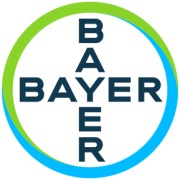
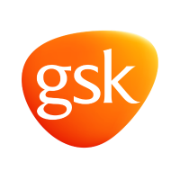
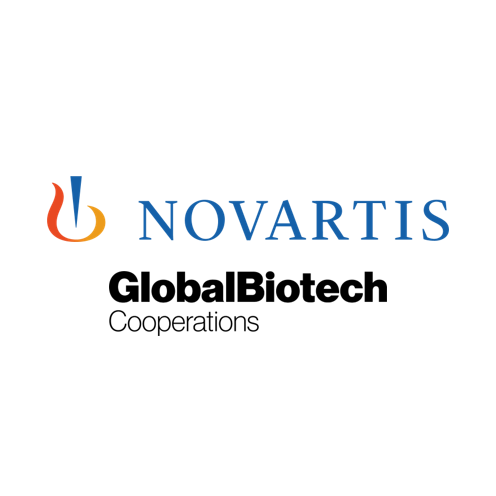
Related News
-
News Women in Pharma: Moving beyond discussions and into best practice at CPHI Milan
In this second CPHI Milan special of our monthly series, we cover the key takeaways from the Diversity & Wellbeing track held on October 10, 2024. -
News CPHI Pharma Awards 2024: Meet the winners from the CPHI Celebration
This year we had a lot to celebrate, the 35th Anniversary of CPHI, and our esteemed award winners, of which we included two additional categories this year, the Future Leader award, and Woman of the Year award. -
News CPHI Milan 2024 - From the Floor
Milan and CPHI welcome you to 2024 CPHI Milan! As we celebrate the 35th edition of our flagship CPHI show, editors Vivian Xie and Lucy Chard bring you the latest from the show floor, conference sessions, and innovative solutions from all exhibitors, at... -
News Women in Pharma: C-Suite Journeys in Leading Diversity
In this CPHI Milan special of our monthly series, we sit down with our panel of C-suite executives speaking on the ‘Leading with Diversity: The CEO Journey’ panel at this year’s show. -
News Women in Pharma: A leader's approach to diversity advocacy
In our monthly series on women in the pharmaceutical industry, we interview leading experts in the pharmaceutical supply and value chain to discuss the importance of gender diversity in healthcare, the workplace, and beyond. -
News CPHI Mentorship Programme - building a stronger pharma community
CPHI has a reputation for bringing the pharma industry together, creating a space where partnerships can be formed and nurtured, and relationships can be developed and cultivated between all industry actors. These collaborations encourage growth in the... -
News CPHI Podcast Series: Why we need to consider women in clinical trials
The latest episode of the CPHI Podcast Series with Lucy Chard covers women's health, specifically women's representation in clinical trials, the associated bias, and the impacts on health for this population. -
News Novartis and Viatris latest facing lawsuit over HeLa cell misuse
Global pharmaceutical companies Novartis and Viatris are the latest hit with a lawsuit claim pertaining to alleged misuse of the ‘HeLa’ cell line from the estate of woman whose cancerous tissue cells were taken without consent.
Position your company at the heart of the global Pharma industry with a CPHI Online membership
-
Your products and solutions visible to thousands of visitors within the largest Pharma marketplace
-
Generate high-quality, engaged leads for your business, all year round
-
Promote your business as the industry’s thought-leader by hosting your reports, brochures and videos within your profile
-
Your company’s profile boosted at all participating CPHI events
-
An easy-to-use platform with a detailed dashboard showing your leads and performance
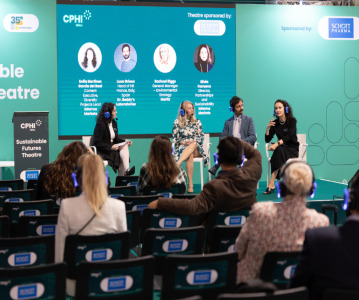
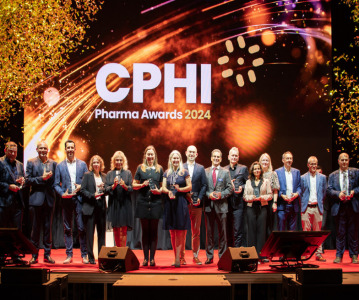


.png)


.png)